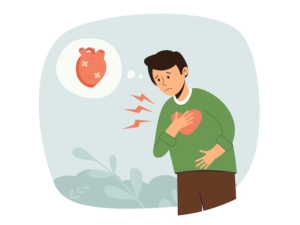Heart Rhythm Disorders, also known as arrhythmias, are conditions characterized by irregular heartbeats or abnormal heart rhythms. The heart's electrical system controls the timing and sequence of heartbeats, ensuring that the heart pumps blood effectively throughout the body. In heart rhythm disorders, this electrical system malfunctions, leading to irregular heartbeats, which can be too fast (tachycardia), too slow (bradycardia), or irregular. Early detection, diagnosis, and management are essential for preventing complications and improving heart function.






WhatsApp us